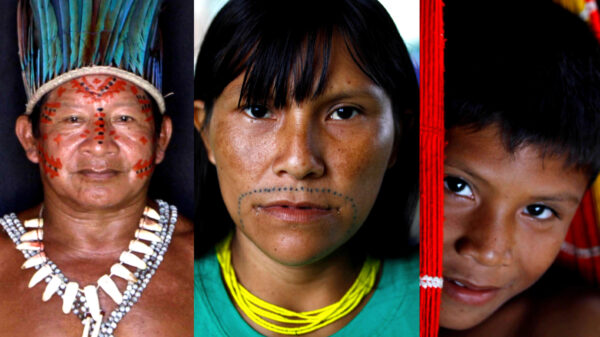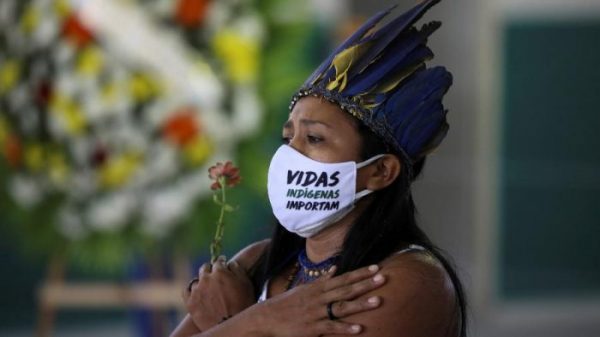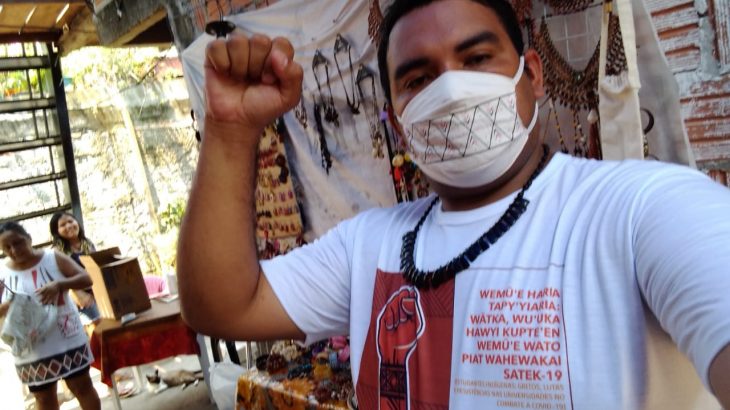Day of Indigenous Peoples: amid the pandemic, stories of survival and resistance
19 de April de 2021

Gabriel Abreu – From Cenarium Magazine
MANAUS – On April 19, the Day of Indigenous Peoples is celebrated. The date was created in 1940, when the 1st Inter-American Indian Congress was held, in the State of Michoacán, Mexico. And to celebrate this event, April 19 was the date chosen in Brazil during the government of Getúlio Vargas, through Decree-Law nº 5.540, of 1943. Indigenous people are a fundamental part of Brazilian culture. During the Covid-19 pandemic, those who survived and resisted the impacts caused by the disease were very vulnerable.
The influence of traditional peoples can be seen in the daily lives of the population and is revealed in the customs, crafts, food, language, and ethnic mix of the Brazilian people.
In the state of Amazonas, there are 65 indigenous peoples. Some publications cite up to 72 ethnicities, in addition to 29 languages spoken.

Resistance
For fashion designer João Paulino, 25, better known as Siodohi, Piratapuya’s ethnicity, speaking about of the indigenous peoples is always to remember the singularities of all the peoples of Pindorama (Brazil), according to their worldviews, language, experiences, and tones. Remember that indigenous identity is immutable regardless of time or place, whether in the village or urban centers.

“Knowing that we are in the process of decolonization and resisting collectively, at a time when they said that we would not be alive anymore, nor talking about our culture, is also one of the steps we have taken. We still have a long way to go. In a country that denies its origin, questions our identity, uses colonialist and genocidal terms, we are challenging a secular structure”, says Sioduhi.
Survival
In September last year, the indigenous Rucian da Silva Vilacio, of the Sateré-mawé ethnicity, reported during the 14th edition of the Iguassu International Tourism Forum how the Covid-19 pandemic affected the Association of Indigenous Women Sateré-Mawé (Amism). Reports on the experience of the association badly affected by the Covid-19 pandemic became the topic of work of the university student in the production engineering course at the State University of Amazonas (UEA).

Due to the pandemic, the tourism sector was the most affected which ended up hurting the sales of handicrafts, it was when the opportunity appeared to make pandemic a formula to earn money by selling masks and herbal baths.
“As a result, we realized that the association reinvented itself in planning and organization, making products from indigenous peoples, such as preparing alcohol and bathing with herbs and aromas from the forest, based on the knowledge of ancestry. The divulgation of products for sale is made on the social networks Facebook and Instagram”, explained Rucian.
Programming
The Fundação Estadual do Índio (FEI) launches the ‘Week of Indigenous Peoples’ that starts this Monday, 19, and runs until Friday, 23, on the organ’s social networks, with videos from different ethnic leaders.
To promote sustainable Ethnodevelopment and the preservation of ethnic, cultural, and historical values in Amazonas, the foundation selected three themes to be worked on during the week: indigenous cuisine, traditional indigenous medicine, and leaders.
According to the FEI’s president, Edivaldo Munduruku, the action on social networks aims to avoid agglomerations, strengthening indigenous movements, extolling the cause, culture and history of indigenous peoples.
“The FEI seeks the development of ethnic groups, the dissemination of indigenous culture, through social networks, and, as a dissemination tool, we created this series with three episodes that will address the segments of cuisine, medicine and indigenous leadership. We are proud of the work that is being developed to spread what it is like to be indigenous on this commemorative date”, he said.
“As we cannot be celebrating this date in person due to the Covid-19 pandemic, it remains for us to use digital media. The important thing is that the date will be remembered and celebrated”, added Munduruku.

